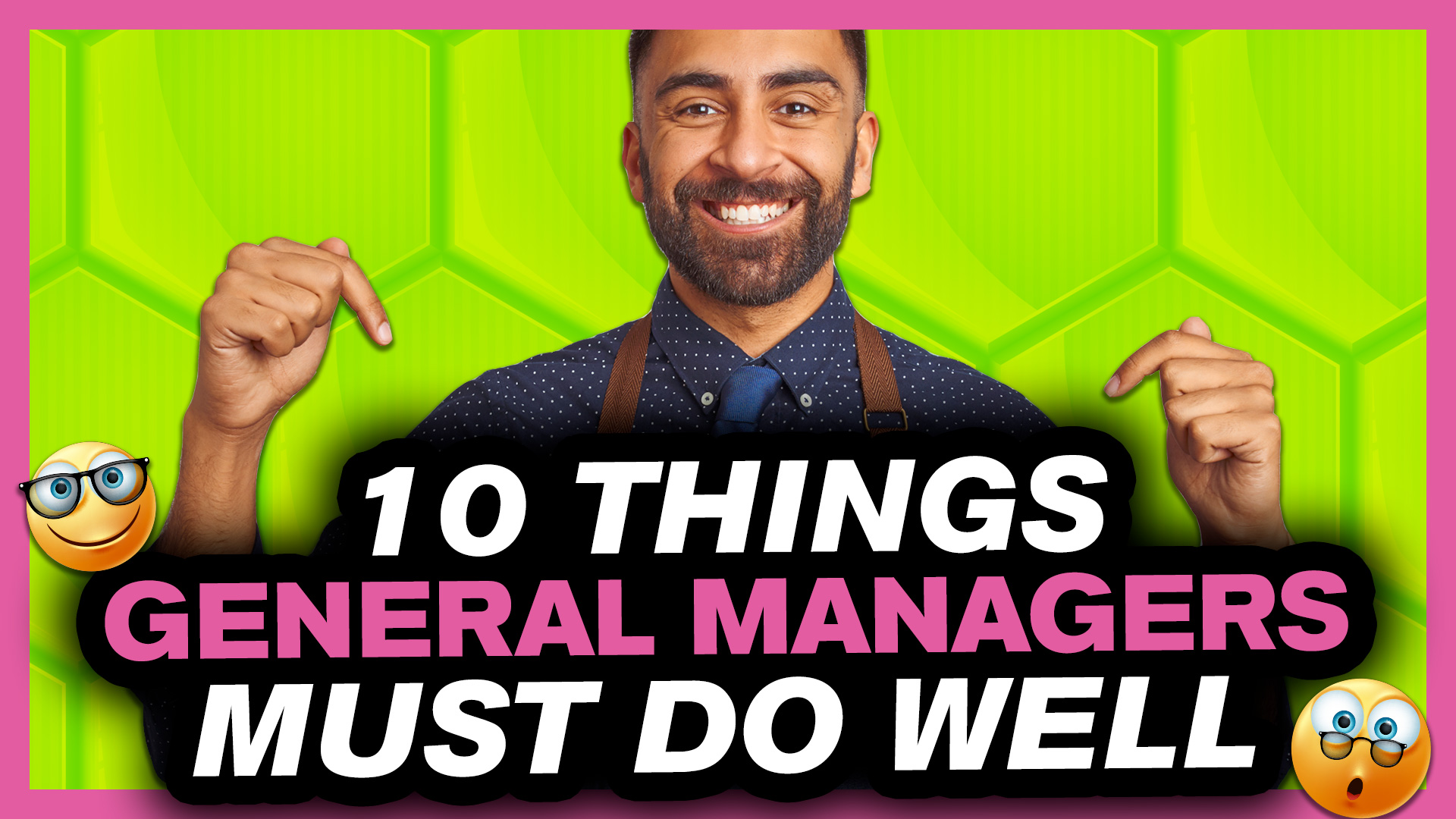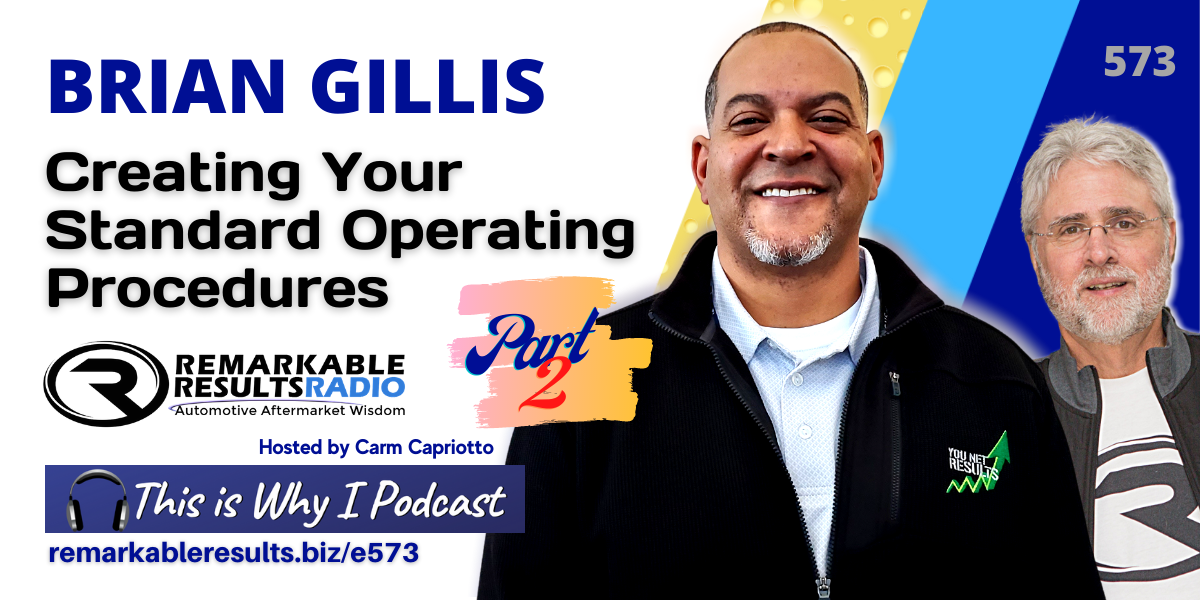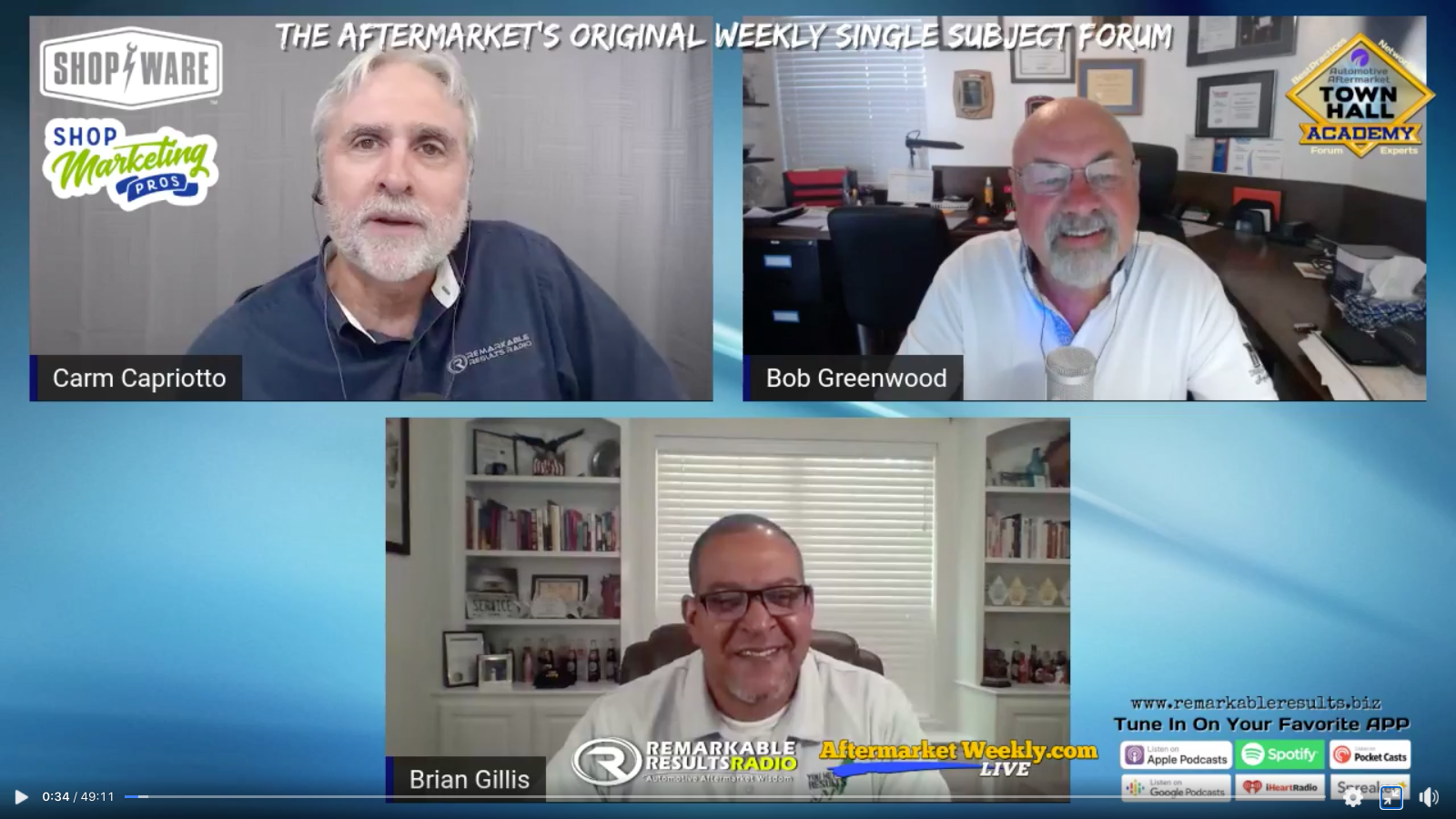
Tasks 1-3 for Effective General Managers
After Brian set the table for our YNR members, he called on veteran shop owner Jerry Kaminski of AutoWise Car Care. Jerry suggested that keeping an eye on your numbers is an imperative move. Whether you review your financial records daily or monthly, taking a regular look is key.
Next, Andy Arndt stressed how important it is to delegate tasks you can’t make time for yourself to your staff. No matter how skilled you are, you can not do it all! You must trust your staff to take some of the workload off of your already full plate. Your time is valuable! If a general manager is stuck under a car, he or she can’t handle their administrative duties.
Task Three that a general manager must do well means both finding and maintaining the right staff. Jim invoked the acronym PAHR – Prepare, Attract, Hire, Retain, which is the method we teach for staffing. Without having the right crew on hand, none of these other tasks are possible.
GM Duties 4-6
Our friend Dana stressed that good communication skills are essential in any management situation. You must stay cool under pressure, and learn the right things to say to both your staff and concerned customers. Above all else, listen!
Brian then called on Bart Brown, who listed leadership as his GM task of choice. Repair shop General Managers must continually train in, and then put into practice, the methods they learn in order to guide their team. The importance of having the proper leadership vision can not be underestimated.
Edward Couture then weighed in with two more tasks that every GM must master. In order to improve workflow, you must learn to manage your time well. Edward credits his time management skills with many of his own business successes over the years.
Tasks 7-8 that a General Manager Must Do Well

General Managers must get buy-in from their staff
Edward continued by saying that all managers must learn to be diplomatic. When you are managing a team of skilled automotive technicians and service advisors, conflicts will inevitably arise.
You should not show any favoritism between your children. In much the same way, you must learn to step in and resolve the disagreements between your staff, whether they are personal ones or professional ones.
Leon told us that every owner, as well as every manager, needs to designate a time one day per week to focus on the business itself. We have always taught this crucial concept as “Working On It Tuesdays”.
It is so easy for us to get caught up in the day to day tasks going on in an automotive repair shop. If you do not reserve a block of time to work on the nuts and bolts of your business, then it is not going to happen. Go in your office for an hour and shut the door. Don’t forget to also tell your crew that you are not to be bothered for that hour.
During that time, study the methods that will increase your effectiveness as both a leader and a general manager. It will save you countless headaches and so much time down the line. Do not do this at home! Operating hours are for business, so you need to take that time to find perspective. Then go home and recharge with your family.
GM Checklist, Tasks 9-10
Next in line, Jerry Kaminski returned to stress the importance of writing and training systems (SOPs). Writing down every task that runs a shop is necessary to get buy-in from your staff. When everyone knows the who, what, when, where, why, and how, they don’t have to hunt you down to ask!
Finally, Andy Arndt mentioned that all General Managers must motivate their teams. Remind your staff members regularly that you are working toward a common goal. Share your vision when you hold your daily and weekly team meetings. When your technicians and service writers are in tune with that vision, then your shop will run like a well oiled machine!
General Manager Task List Review
To summarize this session, Brian then surveyed our group of experienced auto repair shop Owners and General Managers. They determined the following list of ten things that every GM must do in order to succeed:
- Review your shop’s numbers regularly
- Delegate tasks to your staff
- PAHR – Prepare, Attract, Hire, and Retain the right staff
- Master your communication skills
- Lead with a defined vision in mind
- Manage your time wisely
- Be diplomatic with your team of employees
- Spend a set time working on the business one day each and every week (Working On It Tuesdays)
- Write and then train the shop’s SOPs
- Motivate your team properly
Learn More – Book Your FREE Strategy Session Today
Schedule your own FREE business strategy session with Brian right away! You have nothing to lose and everything to gain, so sign up today!







